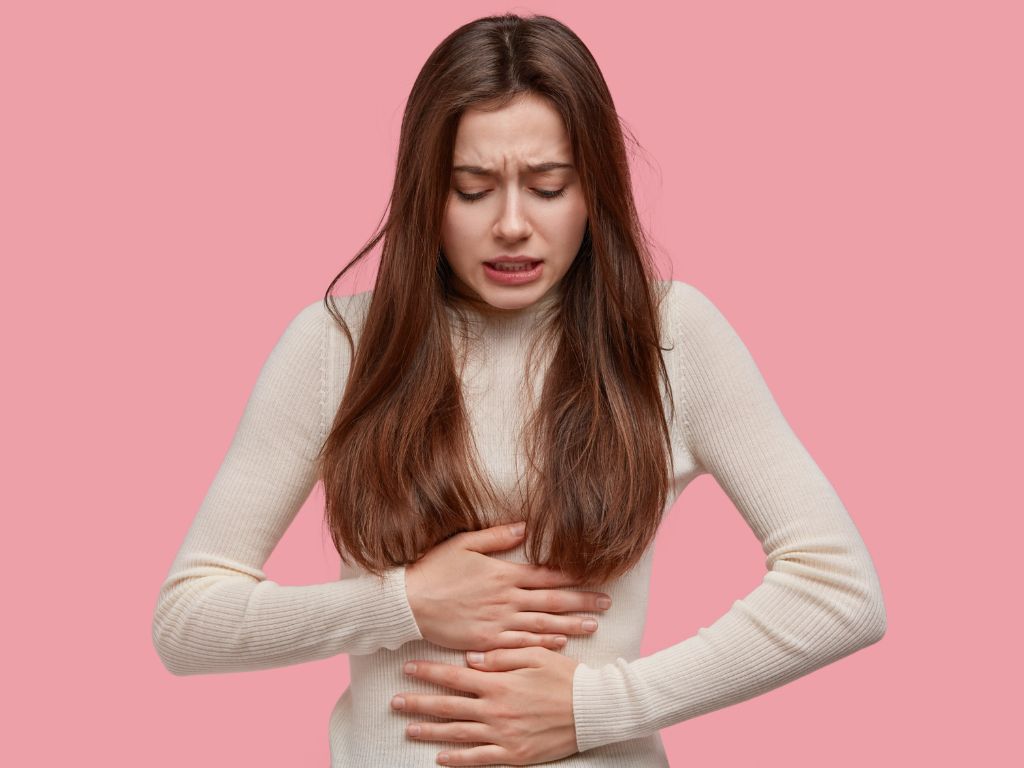Recent studies suggest that Zinc supplements may ease PMS symptoms. Interested in learning more? This article takes a closer look at two of these studies, including how Zinc compares to a placebo over two menstrual cycles.

Premenstrual Syndrome (PMS)
Premenstrual Syndrome, or PMS, is a collection of symptoms that typically begin one to two weeks before menstruation. PMS is characterized by breast enlargement and discomfort, acne, weight gain, headaches and joint pain, cravings for sugary foods, mood swings, irritability, and sadness. Approximately 80–90% of all women have at least some of these symptoms immediately before their period, but for others, the symptoms are severe enough to interfere with their daily lives. This is referred to as Premenstrual Dysphoric Syndrome (PMDS).
Nobody knows for sure what causes PMS, but the main belief is that it is caused by fluctuations in progesterone and estrogen levels in the body. To be diagnosed with PMS, you must have at least one of the symptoms listed above during the five days preceding your period, and it must be recurring for at least three cycles (of which two are subsequent). These symptoms must also go away no later than 4 days after menstruation begins and not return until the following cycle.

How is PMS treated?
Several over-the-counter pain medicines, such as paracetamol and ibuprofen, may help alleviate the milder symptoms of premenstrual syndrome. Various SSRI preparations are occasionally indicated for more serious issues, such as mood and depression. Even certain contraceptives have been demonstrated to alleviate PMS symptoms.
Exercise is often advised as a therapy for PMS since it generates endorphins that enhance mood and boost energy. Acupuncture and cognitive behavioral therapy (CBT) are also utilized, although additional research is required to discover whether or not they are effective.
There are also several dietary supplements that are considered to aid in the treatment of PMS:
- Calcium has been demonstrated to be quite beneficial.
- Vitamin D and B6 have some benefits, although they have not been well researched.
- Zinc's effect on PMS has lately been investigated more thoroughly.

Study (1)
A 6-month, randomized, controlled study has shown that >inc supplementation can ameliorate many PMS symptoms. For three months, 69 women between the ages of 18 and 35 were given either 50 mg of elemental Zinc or an equal number of placebo pills. At the beginning and conclusion of the trial, the PSST-A, a validated measure for assessing the severity of PMS symptoms, was used to determine the degree of PMS. This screening instrument includes two components. The first section evaluates the individual's emotional, psychological, and behavioral symptoms, while the second section evaluates their impact on the individual's daily functioning. The study demonstrated that the Zinc supplement group performed better on both components of the screening exam than the placebo group. Increased Zinc intake decreased rage, annoyance, anxiety, sadness, weariness, and concentration difficulties. Additionally, it enhanced participation in social events, attention and productivity at work or school, and connections with friends, family, and coworkers. Additionally, the Zinc supplement alleviated bodily symptoms including breast soreness, edema, and joint and muscle discomfort.
The fact that lifestyle variables such as physical exercise have not been included is a weakness of this study. Neither have repeated comparisons been performed, which raises the possibility of erroneous results. Consequently, these findings should be regarded as preliminary.
Study (2)
The second study we examined was a 12-week randomized controlled trial involving sixty students from Hamadan University of Medical Sciences. All chosen students with PMS were given either 30 mg of elemental Zinc or a placebo pill with the same appearance. The participants were required to fill out a PMS form daily for two menstrual cycles before the commencement of the study (this had to be the baseline, i.e., what was usual for each individual) and then repeat this procedure daily for two menstrual cycles throughout the trial. Additionally, blood samples and body measurements were collected before and during the trial.
The study revealed that Zinc supplementation alleviated both psychological and physical PMS symptoms, but placebo pills had no impact. The Zinc group had higher blood Zinc levels, more antioxidant capacity, and higher amounts of the brain signaling molecule BDNF, which impacts the interaction between female sex hormones and the brain.

Zinc supplementation
If you suffer from PMS symptoms, it may be worthwhile to try taking a Zinc supplement for a few cycles to see if it will benefit you as well.
In addition to its ability to alleviate PMS symptoms, Zinc is an essential element that helps maintain a healthy immune system. Additionally, it helps the body's metabolism of carbs, fats, and proteins and strengthens the hair, skin, and nails.
VitaMine's Zinc supplement is Zinc Picolinate, which is Zinc combined with Picolinic Acid. This kind of Zinc is quickly absorbed and utilized by the body.



